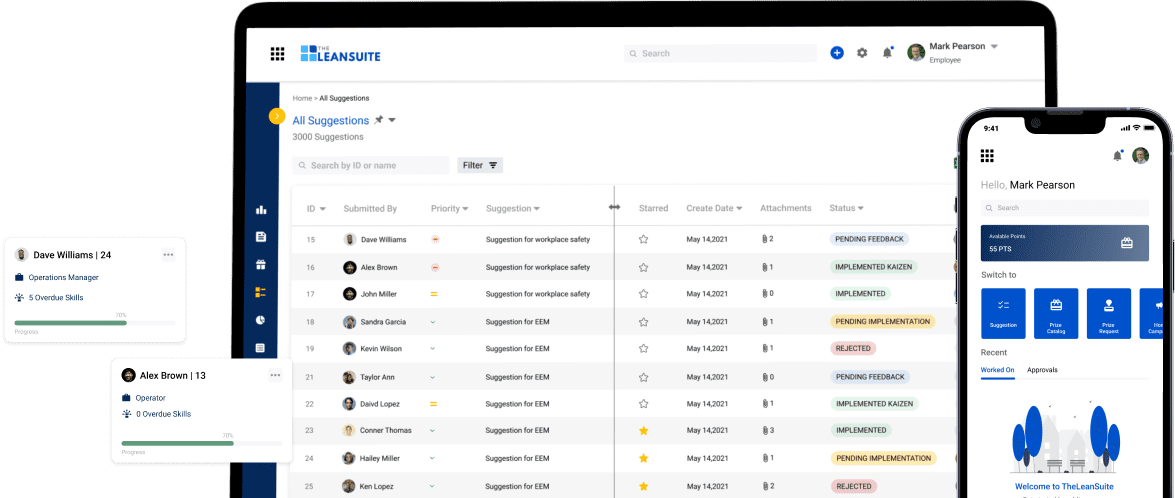3 Types of Employee Recognition
An effective employee recognition program should include three types of employee recognition: social, peer-to-peer, and monetary recognition.
1. Social Recognition
Social recognition is one of the three types of employee recognition. It can come in the form of a shout-out, a digital badge, or simply a comment or emoji. Practicing social recognition allows employees of all levels to feel valued for their contributions to your organization. Furthermore, it allows companies to identify and validate behaviours that align with company culture.
Harvard Business Review states that 40 percent of employees say they would put more energy into their work if they were socially recognized more often. In fact, companies with employees who are highly engaged outperform those who are less engaged, and experience a decrease in absenteeism and turnover rates.
2. Peer-to-peer Recognition
Recognition helps managers grow as leaders as it enables them to practice giving direct, positive feedback. But, recognition doesn’t always have to come from top level employees. As a matter of fact, recognition should come from both colleagues and supervisors to promote everyone’s performance. A recognition program should be inclusive and support peer-to-peer recognition. In essence, it should allow any employee to publicly recognize a team or an individual, and make everyone feel like their work is acknowledged and appreciated.

3. Monetary Recognition
Monetary recognition includes traditional incentives such as bonuses and raises. Rewarding employees with something of monetary value provides them with tangible proof that your organization values them. However, to achieve a comprehensive reward and recognition program, it is important that you provide more personalized rewards. Employees perform better when they’re being offered rewards they actually want.
Points-based reward structures are widely used. In these systems, employees can earn a set number of points depending on the action/task that they’ve completed. Those points can then be redeemed for rewards of their choice. By giving employees the opportunity to choose their own rewards, rewards become more personalized and significant than pre-selected gifts. In fact, organizations that have a points-based reward system see major increases in their sales and customer satisfaction.





